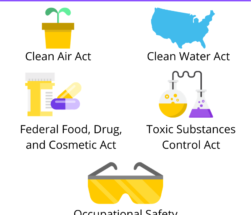In today’s rapidly evolving tech industry, businesses are faced with an increasing need to prioritize ethical behavior and corporate responsibility. With the power to shape society, technology companies have a responsibility to conduct themselves ethically and ensure their actions align with the well-being of all stakeholders. This article explores the importance of business ethics and corporate responsibility in the tech niche, highlighting key principles and showcasing exemplary practices.
I. The Importance of Ethical Conduct in the Tech Industry:
1. Building Trust: Trust is the foundation of any successful business relationship, and the tech industry is no exception. Upholding ethical standards instills trust among consumers, employees, and investors, leading to long-term sustainability and growth.
2. Safeguarding Privacy: As technology becomes inherent in our lives, the protection of user data and privacy is paramount. Tech companies must handle personal information responsibly, implementing robust security measures to prevent data breaches and unauthorized access.
3. Fostering Innovation: Ethical conduct promotes a culture of innovation by encouraging fair competition, protecting intellectual property rights, and respecting the rights of other businesses and innovators. By upholding ethical principles, companies create an environment conducive to creativity and progress.
II. Key Principles of Business Ethics:
1. Transparency: Tech companies must operate with transparency, providing clear and accurate information about their products, services, and business practices. Transparent communication builds trust and allows stakeholders to make informed decisions.
2. Fairness: Treating all stakeholders with fairness is crucial. This includes fair treatment of employees, ensuring diversity and equal opportunities, as well as fair pricing and honest marketing practices directed towards consumers.
3. Environmental Responsibility: As environmental concerns grow, tech companies have a responsibility to minimize their impact. This can involve sustainable manufacturing practices, energy-efficient technologies, and reducing electronic waste through recycling initiatives.
III. Corporate Responsibility in the Tech Niche:
1. Social Impact: Tech companies are not merely profit machines; they have the potential to positively impact society. Corporate responsibility entails addressing social issues, such as supporting education initiatives, promoting digital inclusion, and combating online harassment and misinformation.
2. Employee Well-being: Ensuring the well-being and professional growth of employees is vital. Companies should foster a healthy work-life balance, provide fair compensation, promote diversity and inclusion, and encourage ongoing skill development and personal growth.
3. Community Engagement: Engaging with local communities and contributing to their development is an essential part of corporate responsibility. This can involve volunteering efforts, partnerships with nonprofits, or initiatives that bridge the digital divide and empower underprivileged communities.
IV. Examples of Exemplary Practices:
1. Google’s Commitment to Sustainability: Google has made significant strides in reducing its carbon footprint. It aims to operate on 24/7 carbon-free energy by 2030 and has made substantial investments in renewable energy projects worldwide, setting an admirable example for environmental responsibility in the tech industry.
2. Microsoft’s Pledge to Accessibility: Microsoft has prioritized accessibility across its products and services, ensuring that everyone, regardless of ability, can engage fully. This commitment includes features like live captions, built-in accessibility tools, and partnerships to enhance digital inclusivity.
3. Salesforce’s Philanthropic Efforts: Salesforce is known for its 1-1-1 model, where 1% of its equity, product, and employee time is dedicated to philanthropy. This approach has allowed the company to contribute to numerous charitable initiatives and positively impact communities around the world.
Conclusion:
In the fast-paced world of technology, business ethics and corporate responsibility are paramount. Tech companies must prioritize ethical conduct, transparency, and fairness to foster trust, promote innovation, and safeguard user privacy. Demonstrating exemplary practices in areas such as sustainability, accessibility, and philanthropy showcases the positive impact the tech industry can have on society. Embracing business ethics and corporate responsibility ensures a healthier, more inclusive, and sustainable future for all.








